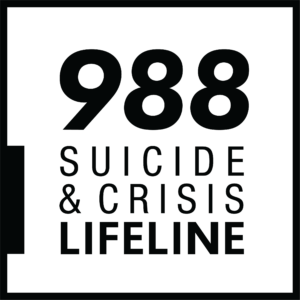As a volunteer with Hey Sam, Gayatri provides text-based mental health support to her peers. Having navigated the ups and downs of student life herself, she knows firsthand how overwhelming new schedules, academic demands, and shifting routines can feel. Drawing from both her volunteer experience and personal journey, Gayatri offers practical insights and strategies for creating a sustainable work-life balance as you transition into a new school year.

Give Yourself Time
As a chronic procrastinator, I find it difficult to stay motivated to get work done when my schedule changes in the beginning of the academic year and I am still in the summer mindset. This ends up affecting my mental health—I get overwhelmed and stressed, and I start feeling like I don’t have enough time. The easiest way for me to avoid this stress is to start the school year with a good work-life balance so schedule changes don’t get too overwhelming.
To help deal with these changes, I recommend making a schedule. This could be filled with daily, weekly, or even monthly tasks, but consistency is key. For me, simply making a to-do list and putting it up on my wall is helpful because I’m forced to see it every time I walk into the room. I’ve had days where I’ve thought, “No way can I get all of this done,” but writing it out helped me plan how much time each task would take. By planning, I can ease myself into my work but also ensure that my tasks don’t start to pile up.
Celebrating every bit of work you get done is highly motivating, and it can often make you want to keep going.
Take a Break
We’ve all been there—up at three in the morning reading and rereading the textbook for the test the next morning, yet nothing seems to stick in your brain. Especially as the school year begins, it’s hard to remember things I learned last year, or even how to study. It can be very stressful when I have a looming deadline but feel like I’m not making progress, and that anxiety can be the very thing that prevents me from getting work done.
If you feel like you aren’t getting anywhere with a task, try taking a break. That will allow you to return to the task with a fresh and clear mind, and your work will tend to be better. If you are tempted to pull an all-nighter, I would advise you to be mindful of your sleep—even a few hours are better than nothing at all. You can also go for a brief walk, meditate or take some mindful breaths, or even take a dance break to stretch out your body!
Celebrate Little Wins
Seeing the number of tasks waiting for you can be overwhelming. Celebrating little wins is a great way to get through tedious tasks that you really don’t want to do. For instance, if you need to write a five-paragraph essay in two weeks, you might start by writing the introduction one day, then a body paragraph each day for the next three days, followed by a conclusion the next day, and save the last week for revisions. Celebrating every bit of work you get done is highly motivating, and it can often make you want to keep going. Celebrate that you wrote your introduction, then each body paragraph, and so on. Get a snack, talk to your friends, take a break to do something fun, or congratulate yourself in another way.
Another tip for separating your tasks is to set a timer. In the example of the essay, you might say that you will write for 20 minutes each day (or whatever amount of time makes sense for you). Set a timer, write for that time, and then stop. Maybe you’ll want to keep going; maybe you’ll be done after the timer goes off. Either way, you got some work done, which is worth celebrating.

Set Boundaries
If you feel your work-life balance slipping, setting boundaries is very important. These boundaries can be with your classmates, yourself, or others. It can be hard to draw those lines, but separating studying and free time can be very helpful.
Group chats, texting, and social media can be huge distractions when you’re trying to focus. I’m sure any high schooler today knows how group chats go; you’ll step away from your phone for a second, and you suddenly have 70 unread messages. Muting a group chat or placing your phone on ”Do Not Disturb” are great ways to set boundaries when you’re studying. Remember, those texts aren’t going anywhere—you don’t have to respond immediately.
Ask for Help
I’ve always struggled with asking for help under some misguided notion that it was a sign of weakness, but it’s actually the opposite. Asking for help is one of the best things you can do for your mental health, and it shows a great deal of maturity to be able to reach out to someone.
If you’re struggling with your work-life balance, try talking to someone. This could be a friend, a teacher, an employer, a trusted adult, or anyone else you feel comfortable with. Whether you’re asking for an extension for an assignment or just wanting to talk, asking for help is one of the best ways to cope with stress in a healthy way.
It is perfectly natural to feel overwhelmed by the demands and changes happening during back-to-school season. Know that you can always reach out to Hey Sam by texting 439-726. My fellow volunteers and I are here to listen to whatever you are going through, without judgment.
You Are Not Alone
If you or someone you know is feeling lonely, depressed, overwhelmed, or having thoughts of suicide, we are here for you.
Text Hey Sam at 439-726, 9AM-12AM (Midnight) ET to talk about back-to-school stressors, or anything else that’s on your mind.









